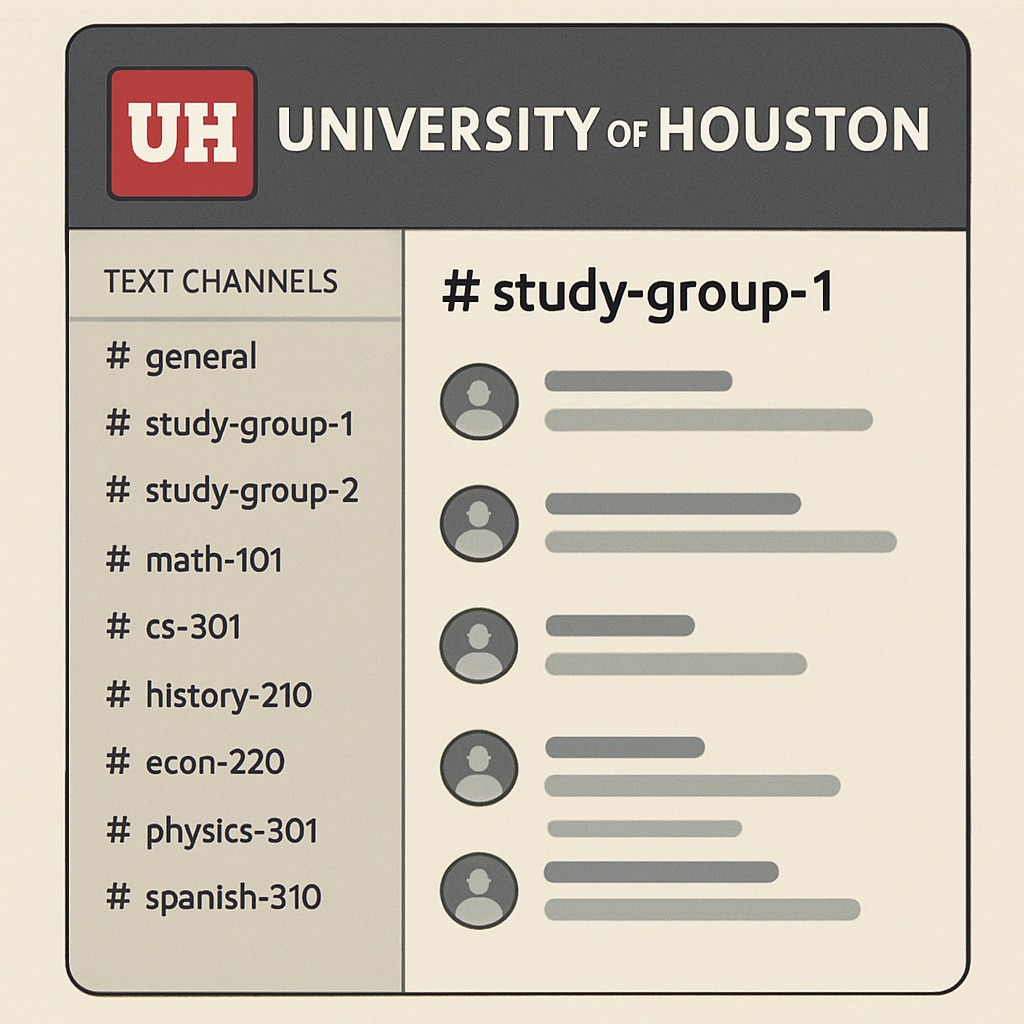Finding study groups, connecting on Discord, and leveraging resources at the University of Houston are key steps to building a supportive learning community. In today’s competitive academic environment, collaboration and peer support have become essential for success. Whether you’re navigating a tough course load or simply looking to enhance your academic journey, the University of Houston offers a variety of resources to help you find like-minded learners and thrive together. Let’s explore how you can tap into these resources and develop a community that fosters growth, resilience, and collaboration.
Why Collaborative Learning Matters in Higher Education
Collaborative learning is more than just working with others—it’s about building connections that enhance understanding and problem-solving. Research highlights that students involved in group learning often perform better academically, develop stronger communication skills, and build lasting relationships. At the University of Houston, the diverse student body and numerous extracurricular opportunities make it an ideal place to find your academic tribe.
For example, study groups not only provide a platform to share knowledge but also help in breaking down complex topics through discussion. Platforms like Discord have further expanded the possibilities for collaboration, allowing students to communicate in real-time, share resources, and support each other outside the classroom.

How to Find Study Groups at the University of Houston
At the University of Houston, there are several ways to connect with peers for collaborative learning. Here are a few practical steps:
- Join Campus Organizations: Many student organizations host study groups or academic workshops. Check the university’s official student life page for a list of organizations aligned with your major or interests.
- Visit the Academic Resource Center: The center connects students with tutoring services, peer mentors, and study sessions. It’s a great place to find structured support.
- Utilize Online Platforms: Platforms like Discord and Slack are popular among students for creating virtual study groups. Search for University of Houston-specific servers or create your own group to collaborate.
- Engage on Social Media: Many students use platforms like Facebook or Reddit to form study groups. Joining University of Houston-specific groups can help you connect with peers quickly.
Building a community doesn’t happen overnight, but by taking initiative, you can surround yourself with peers who motivate and challenge you. These connections often extend beyond academics, becoming a source of emotional support and friendship.
Leveraging Discord for Online Study Groups
Discord has rapidly become a favorite tool for university students to organize study groups, especially at large institutions like the University of Houston. Its user-friendly interface and real-time communication features make it ideal for sharing resources, hosting discussions, and even scheduling virtual study sessions.
Here’s how you can use Discord effectively:
- Search for Existing Servers: Use keywords like “University of Houston study groups” to find Discord servers where students from your university are active.
- Create a Server: If you can’t find an existing group, consider creating your own. Invite classmates and set up channels for specific courses or topics.
- Utilize Features: Take advantage of Discord’s features such as voice channels for group discussions, file sharing for notes, and pinned messages for important updates.
By combining Discord with other university resources, you can create a hybrid learning community that supports both in-person and virtual collaboration. This can be especially beneficial for balancing busy schedules or connecting with peers who may not be on campus. For more on how Discord is transforming academic collaboration, visit this Wikipedia article on Discord.

Applying Collaborative Learning to K12 Education
The principles of collaborative learning extend beyond university life. In fact, integrating these strategies into K12 education can help younger students build critical skills like teamwork, problem-solving, and resilience. Teachers and parents can encourage students to form study groups or participate in collaborative projects, fostering a sense of community early on.
For example, tools like Discord or Google Classroom can be adapted for middle and high school students to facilitate group work. These platforms encourage communication and make it easier to share resources. As a result, students develop habits that will serve them well in higher education and beyond.
Furthermore, incorporating collaborative learning into K12 environments helps students adapt to diverse perspectives—an essential skill in today’s globalized world. By learning to work with others, they not only improve academically but also grow as individuals.
Conclusion: Building Your Academic Tribe
Whether you’re a University of Houston student or an educator looking to inspire K12 learners, the value of collaborative learning cannot be overstated. By tapping into resources such as study groups, platforms like Discord, and campus organizations, you can create a network that fosters growth, resilience, and academic success.
Remember, the journey toward building a learning community starts with a single step. Take initiative, reach out, and embrace the power of collaboration—it’s a skill that will benefit you for a lifetime.
Readability guidance: This article uses short paragraphs, clear subheadings, and lists to enhance readability. It balances professional tone with practical advice, ensuring accessibility for a wide audience. Transitions like “for example” and “in addition” ensure smooth flow between ideas.


